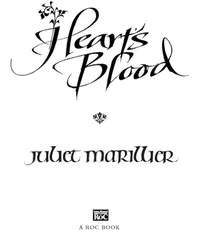Cybele's Secret - Juliet Marillier - Cybele's Secret
Здесь есть возможность читать онлайн «Cybele's Secret - Juliet Marillier - Cybele's Secret» весь текст электронной книги совершенно бесплатно (целиком полную версию без сокращений). В некоторых случаях можно слушать аудио, скачать через торрент в формате fb2 и присутствует краткое содержание. Жанр: Старинная литература, на русском языке. Описание произведения, (предисловие) а так же отзывы посетителей доступны на портале библиотеки ЛибКат.
- Название:Juliet Marillier - Cybele's Secret
- Автор:
- Жанр:
- Год:неизвестен
- ISBN:нет данных
- Рейтинг книги:5 / 5. Голосов: 1
-
Избранное:Добавить в избранное
- Отзывы:
-
Ваша оценка:
- 100
- 1
- 2
- 3
- 4
- 5
Juliet Marillier - Cybele's Secret: краткое содержание, описание и аннотация
Предлагаем к чтению аннотацию, описание, краткое содержание или предисловие (зависит от того, что написал сам автор книги «Juliet Marillier - Cybele's Secret»). Если вы не нашли необходимую информацию о книге — напишите в комментариях, мы постараемся отыскать её.
Juliet Marillier - Cybele's Secret — читать онлайн бесплатно полную книгу (весь текст) целиком
Ниже представлен текст книги, разбитый по страницам. Система сохранения места последней прочитанной страницы, позволяет с удобством читать онлайн бесплатно книгу «Juliet Marillier - Cybele's Secret», без необходимости каждый раз заново искать на чём Вы остановились. Поставьте закладку, и сможете в любой момент перейти на страницу, на которой закончили чтение.
Интервал:
Закладка:
Stoyan’s behavior, to which he adhered with stern resolve throughout the voyage, meant I was thrown into Duarte’s company. He, at least, seemed happy to spend time with me. I heard about his family. They were wealthy; the Esperança was not the only vessel they owned. He told me about his early rebellion against his father’s expectations, his travels as a lowly crewman on various ships, how he had risen to be captain of his own vessel—not the Esperança, which had been a later acquisition, but a more modest one-master. He had indeed supplemented his income with acts of piracy in those early years and had garnered a reputation as ruthless and successful. The long debt of honor to Mustafa had gradually changed him. He said that he no longer employed the kind of tactics he once had, and I believed him, for our journey had convinced me he was a good man at heart. Indeed, he was now a wealthy man in his own right, with no need to engage in underhand practices. He was, in fact, the respectable trader his father had always wanted him to be—he had just taken a little longer to get there than his father would have liked.
I asked him what he would do now that his mission was over, and he said he would go home for a while. The crew was overdue for time off. And Pero’s wife must be told that she was a widow. She would be provided for, as would the fatherless children. There was a code amongst seafarers that required this.
It seemed to me that this account was not quite complete, that there was something on Duarte’s mind he was not telling me. I saw it in the quality of his smile and in the guarded eyes. I did not press it. We were all tired. But it seemed to me Duarte was somewhat adrift now, as a man might well be when his energies have gone for so long toward a single purpose and that purpose suddenly ceases to exist. He needed time to come to terms with the change, to work out what it meant. We read poetry together, drank wine, sometimes sat in companionable silence. It was pleasant, but it could not soothe the ache in my chest that never went away.
We did not encounter the red-sailed ship. Perhaps it was still moored in that little bay, waiting for Irene and Murat to return. Without her orders, I did not suppose the crew would bother pursuing us. I wondered if I would have to report her death and Murat’s to the authorities in Istanbul. I was much relieved when Duarte told me he would take care of this. He would, he said, give a version of our story that could not lead the authorities to Mustafa’s village or expose Irene’s secret to the world. If there was evidence of the cult in her house, something that would reveal the truth to her husband, there was very little we could do about it.
And so fifteen days after our departure, we sailed back into the Golden Horn. The moment the Esperança was tied up at the dock, Duarte got a boy to run up to the Genoese han to advise my father that I was back safe and well and would be there shortly. Stoyan took my little bundle, which contained Tati’s embroidery and the clothing I had been wearing, an Anatolian countrywoman’s outfit given to me in the mountain village to replace my shredded sailor’s clothes. I wore the Greek-style dress that Irene had given me the last time I was in her hamam, the day when Stoyan burst in on us. I could not believe that was less than three weeks ago.
Duarte gave me a book—the Odyssey —and kissed me on the lips at the top of the gangway to a chorus of whistles and amiable catcalls from the crew. As Stoyan and I walked down, their voices rang out behind us: Paula, de brancura singela… I was close to tears and annoyed with myself for being so upset. We had all known it could not last forever.
Father did not utter a single word of reproach but simply gathered me in his arms and thanked God that I was safe. I told him the bare bones of the story but omitted quite a bit of detail, knowing how upset he would be to hear of the physical hardships and danger Tati and I had faced. He listened quietly, as he had six years ago when we had been obliged to explain to him that his eldest daughter had gone to the Other Kingdom and that he would never see her again. When I was finished, Father asked a couple of questions: Was Tati looking well? Had I been injured at all? And lastly, was I happy with the final fate of Cybele’s Gift? If so, Father said, he would draw a line under that matter and we would simply move on. I assured him that what we had done was for the best, even though it meant his voyage had been a commercial failure. It was not an easy conversation.
Stoyan was silent and tense, though when Father embraced him and thanked him for bringing me back safely, he thawed a little. We would be leaving on the Stea de Mare in a few days’ time, and there was much still to be done. If we had not returned when we had, Father would have stayed in Istanbul and kept on searching for us. Because of that uncertainty, he had not finalized the accounts or completed packing the goods we had purchased to take back to Transylvania. He would need me to help with the former and Stoyan for the latter.
I was so tired I could hardly stay on my feet. I greeted Giacomo and Maria and thanked them for their help. They had not only nursed my father back to health but had also put a great deal of effort into assisting him with the search. Father scrutinized me as I swayed and yawned, then told me the accounts could wait until tomorrow. I went to bed and slept for fourteen hours. I got up, washed, and ate breakfast, then went back to bed, promising Father I would do the work in the afternoon. He and Stoyan were busy in the downstairs chamber we were using for our goods, packing up silks.
I did not wake until the midday call to prayer rang out over the Genoese mahalle. I found Father out on the gallery drinking tea. He had sent Stoyan to the docks with a cartload of items to be stowed on the ship.
“I’ve had a visitor,” Father said. “Sit down, Paula. You still look exhausted.” He stood and gestured to the tea vendor down in the courtyard.
“A visitor?” I queried, subsiding onto a chair. “Who?”
“Your friend Duarte Aguiar. He paid me a formal call.”
“I’m sorry I missed him.” It was unsurprising. Duarte would have felt obliged to give some explanation, I imagined, for what must appear to the outside world as a kind of abduction. “When is Stoyan coming back, Father?”
“In time for supper, I imagine.” Father was looking at me quizzically. “Why do you ask?”
“No special reason.” I couldn’t bear that we should leave with things the way they were between Stoyan and me. But he had made it clear that he didn’t want to entertain my suggestion. On all sorts of levels, this was perfectly logical. We were completely different. Our homes were many miles apart. I was a scholarly girl of prosperous merchant stock, he an uneducated farmer from a remote village. He had sworn to find his brother and take the news to his mother, and I was on my way back home. It could be years before I traveled this way again. I might never come. What chance of success could a partnership between us possibly have?
“Mmm-hmm,” murmured Father. “Have you two argued? I’ve noticed quite a frosty atmosphere between you. And Stoyan seems…” He hesitated, searching for the right word. “He seems disturbed.”
“We had a disagreement. Don’t trouble yourself with it.” Oh, how I wished one of my sisters were here, Jena in particular, so I could unburden my sadness and confusion to her and seek some practical advice. This wasn’t something I could tell Father.
After I’d been scowling into the middle distance for a while, Father said, “Aren’t you going to ask me what Aguiar wanted?”
“Wanted? Wasn’t he here to apologize to you?”
Читать дальшеИнтервал:
Закладка:
Похожие книги на «Juliet Marillier - Cybele's Secret»
Представляем Вашему вниманию похожие книги на «Juliet Marillier - Cybele's Secret» списком для выбора. Мы отобрали схожую по названию и смыслу литературу в надежде предоставить читателям больше вариантов отыскать новые, интересные, ещё непрочитанные произведения.
Обсуждение, отзывы о книге «Juliet Marillier - Cybele's Secret» и просто собственные мнения читателей. Оставьте ваши комментарии, напишите, что Вы думаете о произведении, его смысле или главных героях. Укажите что конкретно понравилось, а что нет, и почему Вы так считаете.











